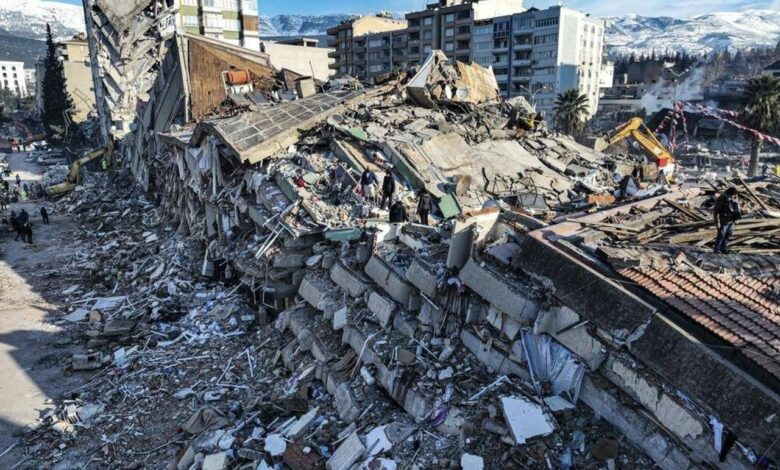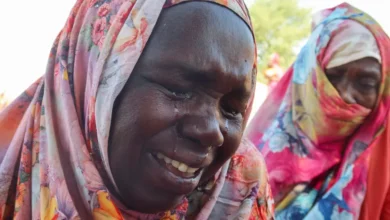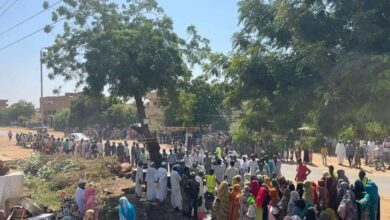Turkey-Syrian Earthquake 2023..The largest disaster of its kind in 100 years

On Feb. 6, a magnitude 7.8 earthquake occurred in southern Turkey near the northern border of Syria. This quake was followed approximately nine hours later by a magnitude 7.5 earthquake located around 59 miles (95 kilometers) to the southwest. As of Feb. 9, at least 1,206 aftershocks have been reported.
The earthquake was the most devastating to hit earthquake-prone Turkey in more than 20 years and was as strong as one in 1939, the most powerful recorded there.
The initial earthquake was centered near Gaziantep in south-central Turkey, home to thousands of Syrian refugees and the many humanitarian aid organizations also based there.
The Turkish government is leading the response through coordination by the Disaster and Emergency Disaster and Emergency Management Authority (AFAD). State authorities declared a level-4 emergency leading to a call for international assistance. Turkish President Recep Tayyip Erdogan declared a three-month state of emergency in 10 of the country’s provinces.
Governments around the world were quick to respond to requests for international assistance, deploying rescue teams and offering aid. The country of Turkey is recognized in English as Türkiye by the United Nations (UN).
Syria’s current complex humanitarian emergency is among the largest humanitarian crises in the world and the earthquake will only exacerbate the situation and vulnerabilities. One obstacle in providing aid quickly in Syria is that the government does not control all of the northwest, the area hardest hit by the earthquake. Coordinated assistance by the UN to Syria’s northwest arrives across the border from Turkey, while Damascus is where assistance is coordinated within the rest of government-controlled Syria.
In northwest Syria, 4.1 million people depend on humanitarian assistance, the majority of whom are women and children. While countries have offered to support Turkey, and the country has disaster management structures to support the response, getting aid to affected Syrians is likely to be more difficult, considering the country is not controlled by one authority.
On Feb. 12, Martin Griffiths, the UN’s top aid official, said, “We have so far failed the people in north-west Syria. They rightly feel abandoned. Looking for international help that hasn’t arrived.” The UN says it is scaling up its cross-border aid operation.
In their Feb. 14 Situation Report, the UN Office for the Coordination of Humanitarian Affairs (UNOCHA) said that priority needs include heavy machines for debris removal; medical supplies, including ambulances and medicine; shelter and non-food items, including heating; emergency food and water, sanitation and hygiene assistance.
On Feb. 15 World Health Organization says the “greatest concern” from the earthquake is in northwest Syria. The death toll from the Turkey-Syria earthquakes has passed 41,000. on their part, Turkish authorities say 35,418 people have been killed in the country. The Syrian government and the United Nations say more than 5,800 people have died in Syria. Yet rescuers are also continuing to find survivors: At least two women were saved in Kahraman, Turkey.
Aid is trickling into northwestern Syria with a UN convoy carrying humanitarian assistance passing through the Bab al-Salam crossing from Turkey. The UN is appealing for $397m in aid to help 5 million Syrian survivors with shelter, healthcare and food.
More than 46,000 people have died and more than 84,000 buildings have either been severely damaged, need urgent demolition, or collapsed, according to officials.
As Turkey attempts to manage its worst modern disaster, concerns are growing over the victims of the tragedy in Syria, with the World Food Programme (WFP) pressuring authorities in the northwest to stop blocking access to the area as it seeks to help hundreds of thousands of people ravaged by earthquakes.





